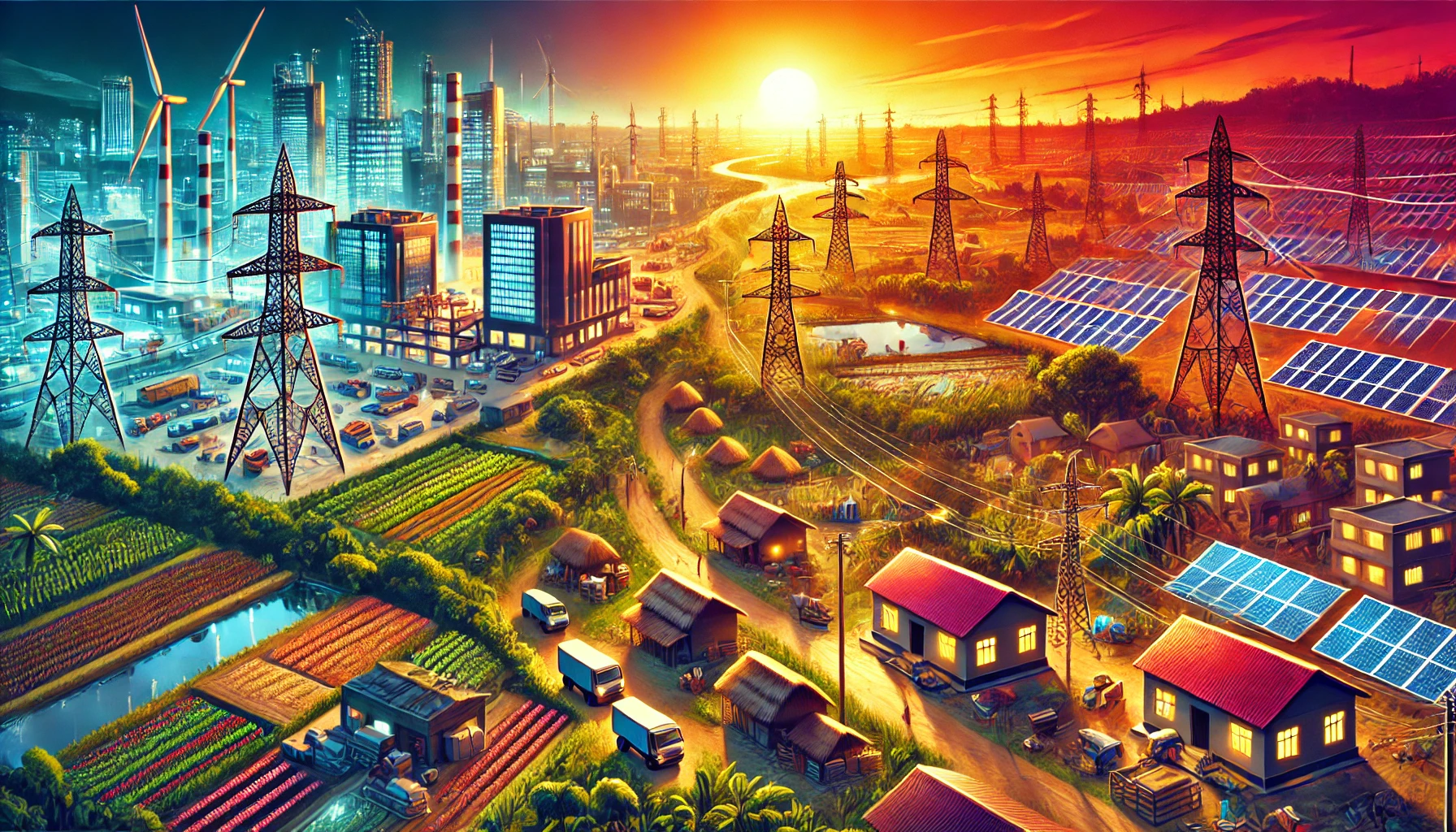Powering Liberia’s Future: Economic Growth, Energy Access, and Structural Reforms
The Liberia Economic Update highlights the country’s 4.7% economic growth in 2023, driven by mining and construction, but warns of challenges from inflation, fiscal deficits, and unreliable electricity. Addressing energy access and structural reforms is key to sustaining future growth and reducing poverty.

The latest Liberia Economic Update by the World Bank highlights the country’s economic progress and challenges, focusing on issues such as fiscal deficits, inflation, and a struggling energy sector. In 2023, despite global economic pressures like falling commodity prices and weak demand in advanced economies, Liberia's economy grew by 4.7 percent. This growth was primarily driven by the industrial sector, particularly gold mining and construction, which played a significant role in boosting economic output. However, the broader economic situation remains fragile due to elevated fiscal deficits, rising inflation, and a widening current account deficit. Inflation jumped to 10.1 percent in 2023, driven by the depreciation of the Liberian dollar and an increase in food prices, which affected the majority of households. The current account deficit, which reflects the gap between the country’s savings and investments, reached 24.4 percent of GDP, exacerbated by weak export growth and rising imports of goods like petroleum and food.
Private Consumption and Public Investment Driving Recovery
Liberia’s economic recovery has been led by private consumption, increased public investment, and resilient gold exports. While the industrial and services sectors have shown steady growth, the agriculture sector has struggled. Agricultural output declined due to falling global prices for key commodities like cocoa, palm oil, and rubber, as well as export restrictions. Cocoa production saw a notable drop of 46.9 percent in 2023, while palm oil and rubber production also declined. These challenges reflect deeper structural issues within the agricultural sector, including limited access to technology, poor infrastructure, and inefficient farming practices. The report suggests that these problems are compounded by weak governance and inadequate investment in critical areas, such as roads and energy, which continue to impede productivity and growth, particularly in rural areas.
Energy Sector Remains a Major Obstacle
The energy sector remains a major obstacle to Liberia’s economic growth. Access to electricity has improved in recent years, especially in urban areas, but significant challenges persist. About two-thirds of the population, particularly in rural areas, still lacks access to reliable electricity. While the Liberia Electricity Corporation (LEC) has made some progress by reducing commercial losses and doubling customer connections between 2021 and 2023, the utility faces persistent challenges. Liberia’s electricity generation capacity is insufficient to meet rising demand, resulting in frequent outages, particularly during the dry season when hydropower generation declines. The high cost of electricity remains a burden for households and businesses alike, further hampering the country's competitiveness. Frequent power outages have a direct impact on the productivity of firms, leading to higher operational costs, especially for businesses that rely on diesel generators during blackouts.
A Pathway to Universal Electricity Access
To address these critical issues, the report emphasizes the need for a comprehensive electrification strategy. The government, with support from development partners, has developed the National Electrification Strategy, which aims to achieve universal electricity access by 2030. The strategy includes grid expansion, utility revenue protection programs, and off-grid solutions, such as solar power, to reach underserved rural areas. The World Bank’s Liberia Electricity Sector Strengthening and Access Project (LESSAP) is a key part of this effort, with the first phase already underway and a second phase approved to expand electricity infrastructure. However, the report warns that without sufficient generation capacity and improvements in the operational efficiency of LEC, Liberia will struggle to meet its energy needs. Strengthening the regulatory framework to promote private sector investment is also crucial for the sector’s development.
Macroeconomic Stability and Future Outlook
Liberia’s macroeconomic stability remains precarious, with significant risks on the horizon. Inflationary pressures, fueled by rising import prices and the volatility of commodity prices, pose a serious challenge. The report notes that if prices for key exports like gold, rubber, and iron ore drop, Liberia’s economic stability could be undermined. Additionally, the weak financial position of LEC, compounded by high levels of power theft and unpaid bills, places a considerable fiscal burden on the government. To address these challenges, the World Bank calls for reforms that focus on improving governance, enhancing public financial management, and encouraging private sector investment. The introduction of a value-added tax (VAT) is expected to help boost domestic revenue, while measures to curb public spending and manage debt are crucial to maintaining fiscal discipline.
Liberia’s economic recovery over the past three years, while promising, remains fragile and heavily reliant on addressing structural weaknesses. The country's growth prospects depend on sustained macroeconomic stability, targeted reforms in key sectors like energy, and improvements in infrastructure. Efforts to diversify the economy away from its reliance on commodity exports, particularly by revitalizing the agricultural sector and fostering private investment in renewable energy, will be critical for long-term sustainability. Moreover, addressing the urban-rural divide in electricity access and enhancing the financial viability of LEC will be key to supporting growth and reducing poverty. The report urges the government to take bold steps toward fiscal consolidation, promote an enabling environment for private sector participation, and invest in education and infrastructure to unlock Liberia’s growth potential and achieve its development goals by 2030.
- FIRST PUBLISHED IN:
- Devdiscourse
ALSO READ
World Bank's Historic Replenishment Secures Future for 78 Nations
World Bank Approves $250M for Türkiye’s Public Health Emergency Preparedness
UPDATE 2-World Bank wins $100 bln replenishment of fund for poorest countries
World Bank Approves $40M Financing to Strengthen Bhutan’s Climate and Disaster Resilience
Digital Transformation Powers Growth in Services Sector Across East Asia and Pacific: World Bank Report










